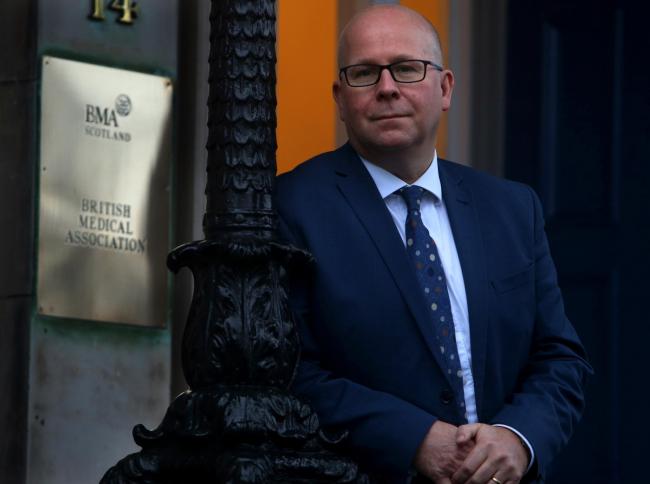With inflation running at incredibly high levels, pay and the cost of living has been causing a great deal of concern for many people across Scotland. GPs and the various professionals working as part of their practice teams are absolutely no different.
Costs across the board are rising at eye watering levels. For independent contractor GPs, that means the costs of running their practice buildings, keeping the lights and heating on, are spiralling and placing additional pressures on practices struggling desperately to keep up with demand.
Against this background it really is no surprise that there has been much discussion about pay for all public sector staff. In the NHS there has been a long running negotiation around pay for Agenda for Change staff – which covers essentially all board-employed staff groups except for doctors and dentists.
While there is still some discussion underway on that – and the Scottish Government is still talking to the RCN, for example, the final settlement Ministers have provided represents an average increase of 7.5% for staff – depending on their salary.
This is hugely relevant of course for GPs, who pay the staff they directly employ, like nurses, receptionists, practice managers, and in some cases other multi-disciplinary professionals. There is a longstanding agreement that Scottish Government provides funding to cover practice staff pay increases within general practice to the same level as other NHS workers. This is logical, fair and ensures that working at GP practices is appealing, and GPs have the necessary funding to employ and retain these crucial team members.
However, this year, the Scottish Government have refused to provide the same level of funding for GP practices, giving just 5%, which is well below the ‘average’ offer of 7.5% for Agenda for Change (AfC) staff. However, many practice staff like receptionists would receive even more under the AfC deal because they are lower earners. Essentially, they are refusing to fully fund the pay increase delivered across the rest of the health sector in primary care.
This is a deeply damaging move for GPs and their staff on a number of levels. It effectively sends a signal that the work going on and care being provided at independent contractor practices – which are still the vast majority of practices in Scotland – is somehow valued less than the work happening elsewhere – including those practices run directly by Health Boards. If that’s not the case, which we are repeatedly reassured it isn’t by the Scottish Government, why not fund the potential pay increase in the same way? By our calculations, this, combined with a failure to match inflation for non-staff expenses, is a nearly £10m shortfall in funding which threatens to devalue and weaken general practice – which is already in a precarious position – even further.
The failure to fund this uplift poses a serious risk to morale, both for the staff themselves who should get the same uplift as comparable NHS staff, because the Government is refusing to fund the uplift properly and GPs, who may lose their staff to other areas of the health service where the pay may now be better. This should be a time, with waning workforce in our GP practice, that we avoid any course of action that may destabilise practices further. Yet by not funding this uplift, as they would normally do, the Scottish Government will be doing exactly that.
This sadly follows a recent pattern of the removal of funding, which will leave GPs seriously wondering if the statements suggesting support for primary care, as the universally acknowledged bedrock of the NHS, are little more than lip service and don’t come with the serious commitment required to back them up.
As SGPC negotiators on behalf of GPs, we have made clear our significant concern at this decision, yet there seems no sign that the Government will consider its position.
With GP morale at the lowest point that I can remember in my career, this will be another blow, and as I have stated many times it comes with general practices at, or indeed beyond their sustainability and tipping point across Scotland – and returning their contracts. I am making that point regularly and robustly in all the conversations I have with Government and their civil servants, where we continue to explain the impact of decisions like this on the service patients receive. I have already warned that the very future of general practice as we have come to know it is at stake without significant change in approach and new investment. Without that we all know what the impact that will have on the care we are able to provide our patients, and the significantly increased expense that would be required to embark on a different path such as an entirely salaried GP service. We hope those in power and those aspiring to power can realise this soon , before it is too late.
Dr Andrew Buist is Chair of BMA Scotland’s GP Committee


Is it time for General Practice to follow the route of Dentists?
Shame for all our patients, and shame on Scottish Government for tacitly pushing it, but the two-tier service is already gaining traction and growing each year.
Hospital consultants already have their NHS “day job” and many have private provision.
The ultimate losers are going to be patients who can’t afford a private service.
Welcome to the pre-1948 NHS – available in Scotland soon.
LikeLike